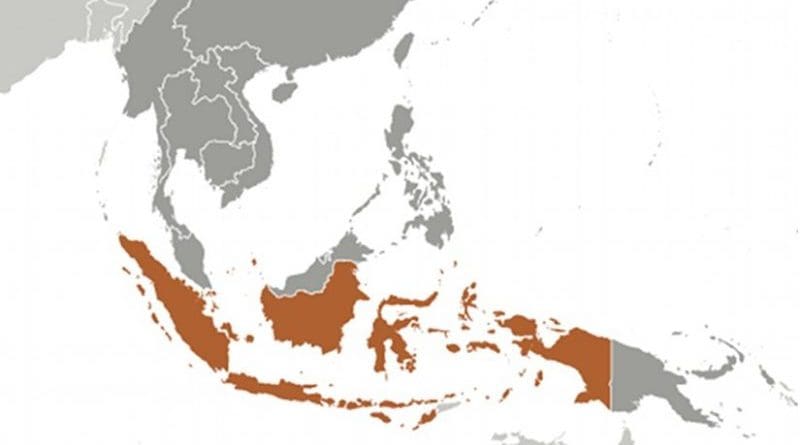Indonesia’s War On Illegal Fishing: Impact On China – Analysis
By RSIS
Indonesia’s war on illegal fishing, particularly by foreign fishing vessels in Indonesian waters, has not only resulted in huge costs to China’s fishing industry. It has also cast a shadow on the future prospect of China’s Maritime Silk Road Initiative and Indonesia’ Global Maritime Fulcrum ambition.
By Zhang Hongzhou*
Since Indonesia’s President Joko Widodo took office in October last year, he has made the “Global Maritime Fulcrum” strategy as the centrepiece of his administration. One of the key elements of the “Maritime Fulcrum” is to revitalise the domestic fishing industry. This has started with a crackdown on foreign fishing vessels in Indonesian waters as Jakarta claims that the country loses up to US$20 billion revenue per year due to illegal, unreported and unregulated (IUU) fishing.
Indonesia’s crackdown on foreign fishing vessels has had a far-reaching impact on China, not only its fishing industry but also the country’s 21st Century Maritime Silk Road (MSR) Initiative. It has also an indirect impact on Indonesia’s Global Maritime Fulcrum ambition.
Huge costs to China’s fishing industry
Since October 2014, Indonesia has sunk 84 foreign fishing vessels. While most of these fishing vessels were from neighbouring countries in Southeast Asia, Indonesia is increasingly taking a tough stance towards China. Jakarta confiscated more than nine Chinese-linked vessels for alleged poaching in January 2015 and sank a Chinese fishing vessel in May 2015.
Indonesia unilaterally revoked a bilateral fishing cooperation agreement which was signed between two countries in October 2013 for violating Indonesia’s domestic laws and giving Chinese fishermen an unfair advantage in fishing in the Indonesian water.
Under the bilateral fishing cooperation agreement signed by two countries in October 2013, Chinese fishermen were allowed to fish in Indonesia on condition they enter into a joint venture with an Indonesian company and own not more than 49 percent of the stakes. The agreement also required the Chinese fishing vessels to be registered in Indonesia and fly the Indonesian flag.
According to China’s official data, there were 17 Chinese fishing companies investing in Indonesia and about 400 Chinese fishing vessels undertaking fishing operations in Indonesia waters, mostly in the Arafura Sea, by October 2014. In addition, over the past few years, Chinese fishing companies have built 11 fishing bases and a large number of new fishing vessels, primarily trawlers and purse seine vessels, in accordance with Indonesia’s fishing conditions and Indonesian fishing regulations. Total investment in the fishing bases and fishing vessels stood at US$ 620 million.
Out of bounds for Chinese vessels
However, after the introduction of a new fishing law by Indonesia, most of these fishing vessels could not operate in the Indonesian waters and the associated onshore fishing facilities have become redundant. This caused huge economic losses for the Chinese fishing companies.
From November 2014 to March 2015, it was estimated by Chinese Distant Water Fishing Association that total direct economic cost suffered by Chinese fishing companies reached US$ 130 million, in addition to 24,000 tonnes of fish catch worth US$ 50 million,-not being able to be transported back to China for sale.
On top of immediate economic cost, Indonesia’s new fishing policy also created obstacles for China’s plan to further develop the country’s Distant Water Fishing sector. As the country’s domestic fishery resources have been quickly depleting due to pollution and overfishing, China considers expanding distant water fishing the critical approach to restructure its fishing sector.
Indonesia has a key role in China’s distant water fishing plan. In 2014, it was estimated that China’s distant water catch in Indonesian waters amounted to 330,000 tonnes worth nearly US$ 500 million, which made up 24% and 34% the country’s total production and value added of the Distant Water Fishing sector respectively in 2014.
Shadow on China’s Maritime Silk Road Initiatives
As China is making all-out efforts to push forward the Maritime Silk Road Initiatives (MSR), Indonesia is poised to play a major role in the future success of MSR. This is not only because Indonesia is the biggest and most populous country in Southeast Asia but also due to the fact that MSR and Indonesia’s Global Maritime Fulcrum are complementary, and offer great potential for the two countries to enhance maritime cooperation.
During President Jokowi’s visit to China in March 2015, the two countries agreed to strengthen strategy and policy communication, advance maritime infrastructure connectivity, deepen cooperation in industrial investment and major project construction, and enhance practical cooperation to develop a “maritime partnership” together. Currently, however, Chinese investment in Indonesia is still quite low.
Although in recent years, Chinese companies have shown growing interest in investing in Indonesia, China was only ranked the 10th among Indonesia’s top foreign investors, according to latest data. Low level of Chinese investment in Indonesia has been largely due to bureaucratic obstacles, weak rule of law and low level of protection for foreign investors. Indonesia’s recent actions against Chinese fishermen and fishing companies certainly further damaged Chinese investors’ confidence in investing in Indonesia.
Way forward
For Indonesia, while it is understandable that it intends to tackle IUU fishing which has brought enormous loss for the country, the legitimate interest of foreign investors need to be protected, particularly given the fact that Indonesia’s “Maritime Fulcrum” desperately needs foreign investment.
For China, as far as the fishing sector is concerned, the focus needs to shift away from outward expansion of marine fishing to sustainable aquaculture and fish processing, which should also be one of the key areas for maritime cooperation with Indonesia under the MSR framework.
*Zhang Hongzhou is an Associate Research Fellow with the China Programme at the S. Rajaratnam School of International Studies (RSIS), Nanyang Technological University, Singapore.

